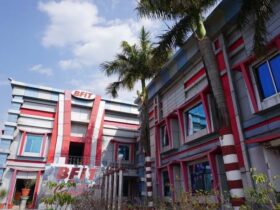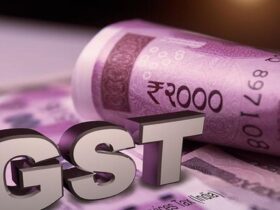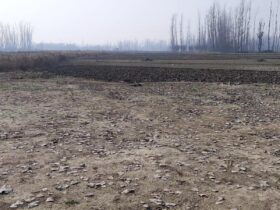Malik Sumeed
Srinagar 04 July(KNB): The convocation ceremony at SKUAST-Kashmir was a grand affair, with Chief Minister Omar Abdullah extolling the virtues of agriculture and the role of young scientists in shaping the region’s future. However, beneath the pomp and ceremony, a group of agriculture graduates shared a different story – one of frustration and disillusionment.
Despite their degrees in agricultural sciences, these young professionals are struggling to find employment in the Agriculture Gazetted Service. No direct recruitment has taken place since 2005, and over 300 sanctioned positions remain vacant. A high-level committee had recommended amendments to the quota rules, the Law Department had given its clearance but the file remains stalled in the General Administration Department and suspended in bureaucratic purgatory—tangled in confusion over whether it requires the Chief Minister’s assent or the Lieutenant Governor’s nod.
“There’s a tussle over power, and in between, merit perishes,” one graduate said, with a resignation that pierced deeper than outrage.
In the tug-of-war over “business rules,” the business of governance has come to a standstill.
The bitterness in their voices turned sharper when the subject of selective privilege arose. “Mr. Iqbal Choudhary was first given two extensions by the Agriculture Production Department, and now he has been reappointed at SKUAST. That’s three chances,” one student remarked with evident pain. “We, the non-influential, are told to wait for business rules to settle.” It was not envy—but the anguish of being systemically unseen.
At a time when national rhetoric is saturated with terms like “self-reliance,” “sustainability,” and “agri-innovation,” it is a tragic paradox that the very hands trained to shape that vision are left idle. These graduates are not simply jobseekers—they are agronomists, soil scientists, plant breeders, and extension officers, trained not only to read the land but to heal it.What the government fails to realise is that this is not just about employment—it is about hope. And hope, once eroded, is hard to sow again.
“We are trained to feed a nation, yet we cannot feed ourselves,” one graduate told news agency Kashmir News Bureau-KNB, highlighting the irony of the situation. The graduates spoke of merit perishing in the power struggle, with selective privilege being granted to those with connections. “There’s a tussle over power, and in between, merit perishes,” one graduate said.
The situation is a paradox, where the government talks about self-reliance, sustainability, and agri-innovation, but fails to utilize the skills of these young professionals. As one student held his degree like a fragile relic, he said, “We are not asking for luxury, just dignity. Just a chance to serve.”
As I walked away, the convocation behind me began to feel like an illusion. Caps had been tossed, photos taken, speeches made—but outside, the sun bore down on a silent truth. Here stood a generation not celebrating its achievement, but mourning its irrelevance.
So while ministers speak of “grassroots problem solvers,” the roots of despair run deeper, in the very soil these graduates once dreamed of transforming.(KNB)


















Leave a Reply